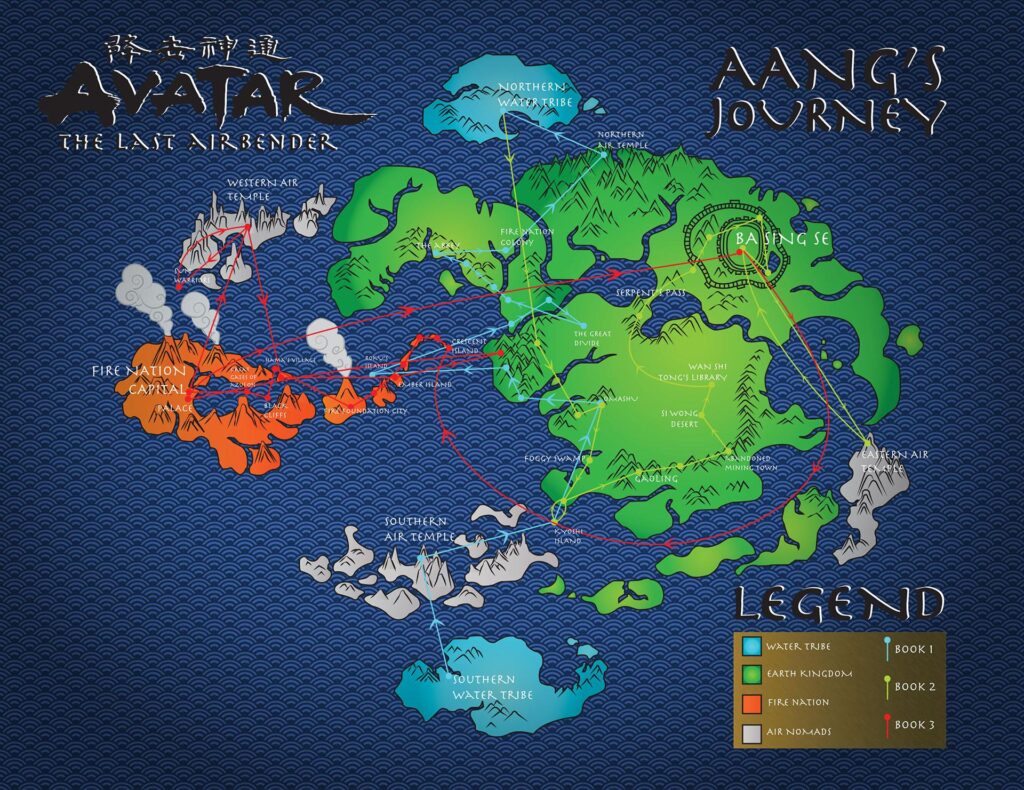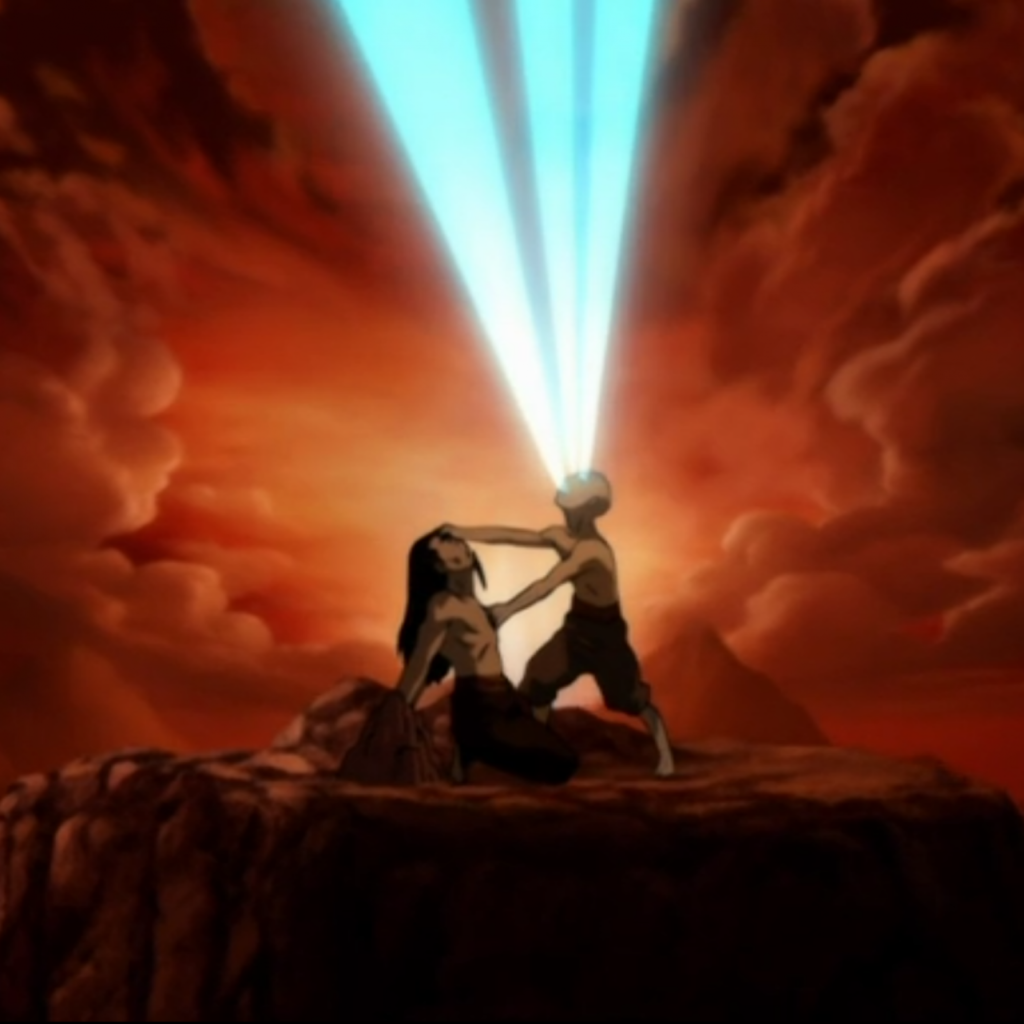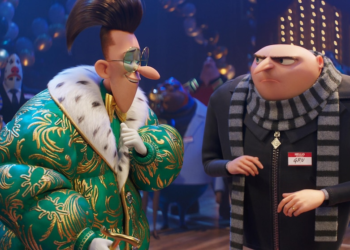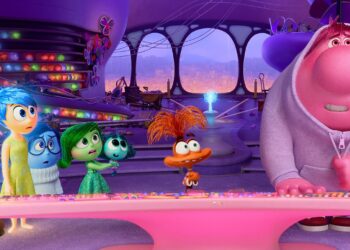Every once in a while, a movie, TV series, book, or stage show comes along that sets public imagination aflame, and, under the right circumstances, becomes a cultural phenomenon; of course, it goes without saying that nobody ever intends to produce something that leaves such a profound impact—it just happens. I have noticed, however, that such runaway successes typically stand the test of time because they speak to universal truths about the human experience. It has proven true with such properties as Harry Potter, Star Wars, and The Lion King, and it’s equally true in the case of Avatar: The Last Airbender (2005-2008).
In a world rooted in traditions derived from various Asian religions, some people are able to manipulate (“bend”) the classical elements through a blend of telekinesis and martial arts. The Avatar, the only person who can bend all four, serves as a peacekeeper between the civilizations built around them: the Water Tribes, the Fire Nation, the Air Nomads, and the Earth Kingdom. Unfortunately, at the beginning of the series, the Fire Nation is close to winning a century-long war to conquer the world, and the Avatar is missing. Then, Katara and Sokka, a sister/brother pair from the Southern Water Tribe, discover the Avatar’s latest incarnation—a 12-year-old Air Nomad named Aang. In due course, the trio embarks on a perilous quest across the world to help Aang master all four elements to defeat the Fire Nation and restore harmony and balance, making new allies and facing formidable enemies along the way.

It’s no stretch to say that Avatar boasts the most engrossing, colorful, and downright fascinating mythos of any fantasy series created in the last 100 years. Creators Bryan Konietzko and Mike DiMartino give us a universe so imaginative that it makes most other constructed worlds seem rather banal in comparison, what with its combination of elemental bending, a menagerie of wildlife that would make Dr. Seuss jealous, and a history so intricate that you always find new and intriguing details every time you watch it (and which are expanded on further in the various spin-off books and comics and the sequel series, The Legend of Korra); this is world-building at its finest, no question. Not to mention, it pays sincere homage to the real-world cultures and philosophies that inspired it, showing that the crew respected them enough to research down to the smallest detail to make sure that they were representing it right, which is no small feat for a Western-produced series. (Mind you, I am rather irritated that the voice cast consists mostly of white people, but their superb performances make up for it tremendously.)
However, a world is only as good as the characters who inhabit it, and Avatar boasts perhaps the most dynamic cast of any series I’ve reviewed for Rotoscopers so far. Each and every individual is treated as a three-dimensional, morally complex, believable personality, and each of them grows a lot over the course of the series; moreover, everyone’s evolution is handled with great care and nuance, whether it’s Aang coming to terms with his responsibility as the Avatar, Katara adopting a more pragmatic outlook as the war drags on, Sokka coming into his own as a leader, or Zuko’s much-analyzed (and exceptionally well thought-out) redemption arc. Better still, the supporting characters are just as compelling as the leads, with some having undergone their own character arcs prior to the events of the series proper (Iroh, for example).

All of this helps to serve an adroitly-paced and smartly-written plot, where the stakes are genuinely high, and we, the audience, are constantly kept on the alert. However, I think that one of the biggest contributors to the show’s ever-increasing popularity is its conviction to delve deep into the darkness to explore themes that aren’t always discussed very well in all-ages-appropriate media. Avatar pulls no punches in its analysis of such topics as imperialism, genocide, sexism, or the ramifications of war, and it maturely addresses the deeply philosophical questions surrounding destiny and free will. Perhaps not since Gargoyles has a show produced by a major studio shown such daring in its thematic and narrative choices. And what’s more, what with the current state of social and political unrest in the world today, its recent resurgence in popularity over the last couple of years speaks to just how relevant it is to us now. Small wonder, then, that this was the first animated TV series to win the prestigious Peabody Award, which recognizes the most engaging and powerful achievements in broadcast media.
Simply put, Avatar: The Last Airbender is a show that genuinely deserves its status as one of the greatest pop cultural phenomena in recent memory. With well-written and relatable characters, a beautiful and fascinating setting, a well-executed story, superlative animation, and timeless and meaningful lessons for us all, it truly is a classic for the ages.
This is a user-submitted post by Jordan Hashemi-Briskin.
What are your thoughts about Avatar: The Last Airbender? Is it worth the critical and cultural acclaim? Let us know your opinion!
Edited by: Kelly Conley






